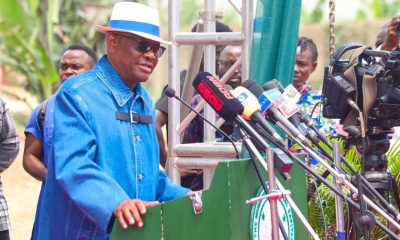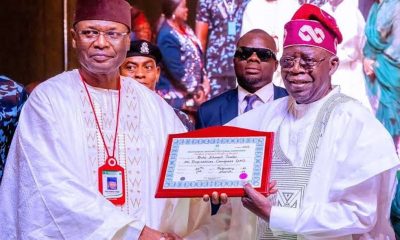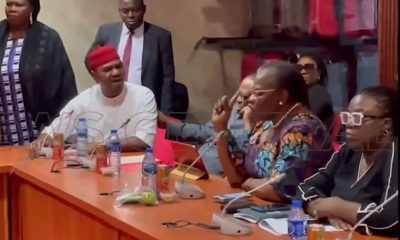News
Suspense as Senate unveils Tinubu’s ministerial list today

Suspense as Senate unveils Tinubu’s ministerial list today
After 50 days in office, President Bola Tinubu has sent the list of his ministerial nominees to the Senate, and to be read out today by the President of the Senate, Godswill Akpabio.
The Guardian gathered that the Clerk of the National Assembly, Magaji Tambuwal, received the letter containing the list yesterday.
As mandated by law, the President is obligated to submit the list of ministerial nominees within 60 days of assuming office. After Tinubu’s inauguration on May 29, he has until July 26 to fulfill this requirement.
According to insider sources at the Presidency, the ministerial list had been prepared well in advance, but recent adjustments have been made to ensure its utmost effectiveness.
“The list of ministerial nominees has been ready since, but the President had to make some changes in some states,” a reliable source disclosed.
Nigerians have been eagerly awaiting the unveiling of the ministerial list, leading to the circulation of various speculative lists in recent weeks. Nonetheless, President Tinubu has skillfully guarded his choices, leaving the public in suspense as to who will ultimately secure portfolios in the final list of cabinet members.
The ministerial list is widely anticipated by Nigerians as one that will further show the policy direction of the Tinubu administration, in addressing the myriad of challenges facing Africa’s largest economy.
READ ALSO:
- DSS raises alarm on IPOB lawyer mobilizing colleagues against DG, Yusuf Bichi
- Tinubu did not have telephone conversation with CJN – APC
- Battle to unveil Tinubu’s drug record, true identity rages in US court
Tinubu’s letter further reduces the anxiety and suspense surrounding his ministerial nomination list. Although no official statement or information has emanated from the Senate to this effect, credible sources close to the office of the Senate President disclosed that the list has reached the Senate.
When asked to reveal the nominees, the source simply said: “What I can tell you is that the list is here now. On the content of the envelope, only the Senate President can open it and as such I can’t speculate about the nominees.”
A ranking senator, who was reached to confirm the story, however said he had no knowledge of the development.
“Why are you in a hurry? If the list is here (in the Senate), the Senate President will read it out tomorrow. If not, all of us will keep waiting for it.”
But when reminded that the President has less than 10 days to transmit the list of nominees, he said: “I can tell you that before this Thursday, the nominees will be made known to Nigerians.”
One of the expected outcomes of the list that has been talked about by many political pundits and public affairs commentators is the inclusion of some opposition party members. It is no longer news that some opposition members were instrumental to the victory of Tinubu at the presidential polls.
The Peoples Democratic Party (PDP) G-5 governors, led by ex-governor of Rivers State, Nyesom Wike, were instrumental in inflicting calculable damage to the fortunes of their party and their presidential candidate, Atiku Abubakar. Other members of the G-5 governors include: Okezie Ikpeazu (Abia), Ifeanyi Ugwuanyi (Enugu), Samuel Ortom (Benue), and Seyi Makinde (Oyo).
READ ALSO:
- Man overdoses on drug, invades catholic church, destroys property
- 42-year old Okada rider’s body found with private parts severed in Delta community
- We can’t rescue accident victims outside federal roads, says FRSC …to appeal restrictions judgement
Similarly, the New Nigeria Peoples Party (NNPP) presidential candidate, Senator Rabiu Kwankwaso, is also highly tipped for a place in Tinubu’s cabinet.
The presidential spokesman, Dele Alake, recently said that it is only President Tinubu that could decide when to submit the list of the nominees to the National Assembly, as well as those to make the list. Alake assured that the list would be made public before the expiration of the 60 days.
According to sources familiar with the President’s thinking, he plans to form a government of national interests across party lines by giving appointments to members of opposition parties with his eyes already on the 2027 general elections.
With these calculations, coupled with the need for further consultations with key stakeholders within and outside his party, the All Progressives Congress (APC) has been forcing the President back to his drawing board to constantly tweak portfolios to assign to states and who to appoint to effectively man the post.
According to another source, the first batch of nominees to the Senate is ready for confirmation just to beat the July 26 constitutional deadline. “He will subsequently forward more names to the Senate for confirmation after the deadline.”
Prominent among the states giving President Tinubu dilemma is Kano State. After weeks of consultations and political engineering, it has emerged that political arch-rivals and former governors of the state, Kwankwaso of NNPP and his successor, Abdulahi Ganduje of the APC, will be nominees representing both Kano and the Northwest zone in the cabinet.
Suspense as Senate unveils Tinubu’s ministerial list today
(The Guardian)
News
World Bank approves Tinubu’s $632m loan request

World Bank approves Tinubu’s $632m loan request
The World Bank is poised to approve $632 million in new loans to Nigeria today (Monday), amid growing concerns over the country’s expanding debt profile.
The loans are intended to support important sectors such as nutrition enhancement and quality basic education.
According to data obtained from the World Bank’s website on Sunday, the two loans scheduled to be approved today are $80 million for the Accelerating Nutrition Results in Nigeria 2.0 initiative and $552 million for the HOPE for Quality Basic Education for All programme.
Both projects are now in the negotiating phase and are likely to gain final clearance later today.
These new loans are part of the World Bank’s overall strategy to support Nigeria’s development agenda, which focuses on healthcare, education, and community resilience.
The loans will support the government’s efforts to improve nutrition and education for Nigerian children.
Additionally, the World Bank approved a $500 million loan for Nigeria’s Community Action for Resilience and Economic Stimulus Programme on March 28, 2025, a significant step towards addressing the country’s economic challenges through expanded access.
The initiative, formally known as the NIGERIA: Community Action (for) Resilience and Economic Stimulus Programme, is intended to give critical support to households impacted by economic downturns while also strengthening community resilience.
The initiative focuses on vulnerable populations, providing assistance to households and small companies to help them cope with economic difficulties.
READ ALSO:
- Okada rider allegedly stabbed to death by wife over money
- Police rescue two persons abducted in Lagos
- Miyetti Allah accuses Benue community of poisoning 20 cows
The loan clearance is likely to considerably boost Nigeria’s efforts to revive the economy through grassroots backing, especially given current issues such as inflation and high living costs.
The stimulus plan will prioritise enhancing food security and developing economic possibilities for the populations most affected by recent economic changes.
This decision came after a delay in distributing funds for a previous loan aimed at poor and vulnerable Nigerians.
Further investigation by The PUNCH revealed that the World Bank disbursed around $315 million to Nigeria from the $800 million allocated for the National Social Safety-net Program Scale Up.
Nigeria is yet to receive further funding from the World Bank for this loan project, which was approved in December 2021. The delay in grant release is most likely due to fraud detected under the initiative.
In honour of the 2023 International Day for the Eradication of Poverty, President Bola Tinubu unveiled a social safety net programme that will distribute N25,000 to 15 million households over the course of three months.
The Federal Ministry of Humanitarian Affairs and Poverty Alleviation was responsible for managing the $800 million World Bank loan initiative.
However, due to allegations of embezzlement, the federal government was forced to stop the cash transfer program for further investigation and reform.
Betta Edu, a former humanitarian minister, was previously suspended for misappropriating N585 million set aside for palliative care distribution.
READ ALSO:
- Wike’s aide slams Atiku, says it’s too late to buy integrity
- Reps Committee recovers N21.4bn from four oil companies
- West African juntas impose levy on imported goods ECOWAS nations
Furthermore, Sadiya Umar-Farouq, Edu’s predecessor, was under investigation by the EFCC. The former minister is being investigated for allegedly laundering N37.1 billion during her stint as minister.
The World Bank also imposed sanctions on people and businesses discovered to be engaging in fraud under the initiatives.
According to the World Bank’s official website, this will bring Nigeria’s total approved loans to $9.25 billion over three years, indicating a growing reliance on multilateral funding to support critical sectors of the economy such as infrastructure, healthcare, education, and financial resilience.
A review of Nigeria’s World Bank loan approvals since 2023, under President Bola Tinubu’s government, reveals a huge rise in funding commitments.
In 2023, the World Bank approved $2.7 billion in loans for renewable energy, women’s empowerment, education, and the power sector. In 2024, funding approvals totalled $4.32 billion for various projects.
This increase was largely due to Nigeria’s growing need for financial assistance to stabilise the economy amid fiscal pressures and rising public debt.
Under President Bola Tinubu’s administration, the World Bank granted around 11 different credit projects for Nigeria.
In less than two years, the federal government has acquired loans from the World Bank totalling $7.45 billion, raising concerns about the mounting debt burden. According to data from the Debt Management Office, the World Bank’s portion of Nigeria’s external debt is $17.32 billion as of the third quarter of 2024.
The International Development Association is owing the majority of this debt, which amounts to $16.84 billion, or 39.14 per cent of Nigeria’s total external debt.
The International Bank for Reconstruction and Development, another World Bank subsidiary, is owing $485.08 million, or 1.13 per cent.
While the planned World Bank loans may give much-needed budgetary relief, concerns persist about the country’s mounting debt burden.
According to recent data from the Central Bank of Nigeria, the country has spent $5.47 billion servicing external debt in the last 14 months, underscoring the strain on its foreign reserves.
World Bank approves Tinubu’s $632m loan request
News
Investigation of wanted businesswoman Achimugu not linked with Atiku, Sanwo-Olu – EFCC
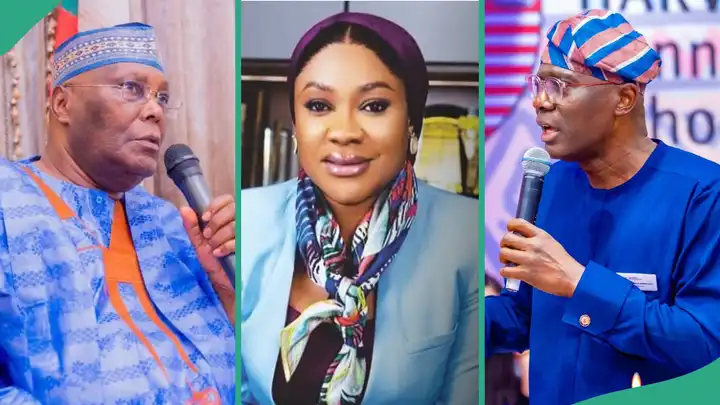
Investigation of wanted businesswoman Achimugu not linked with Atiku, Sanwo-Olu – EFCC
The Economic and Financial Crimes Commission has reacted to media reports linking its investigations of Ms. Aisha Achimugu with political undercurrents involving former Vice President Atiku Abubakar and Lagos State Governor, Babajide Sanwo-Olu
This is contained in a statement by the commission on Friday night.
The statement read, “We wish to state unequivocally that the investigations of Achimugu have no correlation of any kind with the two political actors. She is being investigated for alleged criminal conspiracy and money laundering and has since been declared Wanted by the Commission”.
The EFCC started investigating Achimugu in 2022. Although she approached the court to obtain an injunction restraining the Commission from arresting, investigating, inviting or detaining her for any alleged criminal act, the injunction was challenged and vacated on Wednesday, February 19, 2025 by a Federal High Court sitting in Abuja.
The court ruled that “…no court has the power to stop the investigative powers of the Police or EFCC or any agency established under our laws to investigate crimes when there is reasonable suspicion of commission of a crime or ample evidence of commission of an offence by a suspect.”
“The court further upheld the interim order of forfeiture of assets of Achimugu suspected to be proceeds of crime, dismissing her suit against it as lacking merit .
“The foregoing clearly establishes that the EFCC’s case against her has no immediate or remote nexus with any politician or any veiled or open reference to any political engagement or transaction.
“The EFCC is non-partisan and non-sectarian. We enjoin the public to continue to keep faith with the professionalism of the Commission without imputing any extraneous consideration to its works.”
News
Why governors’ forum is silent on Rivers emergency, by DG
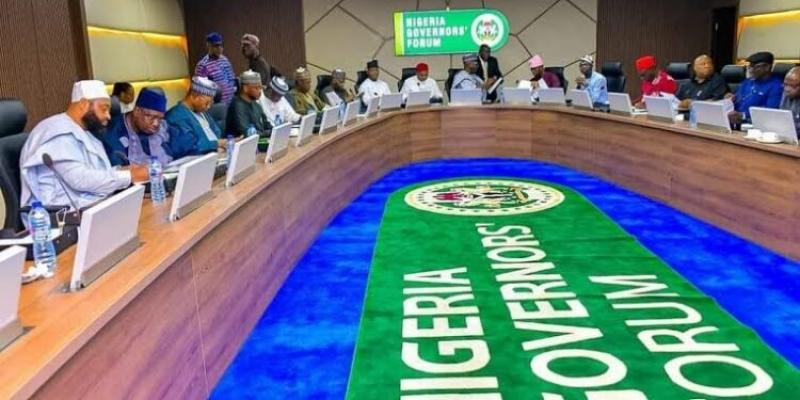
Why governors’ forum is silent on Rivers emergency, by DG
The Nigeria Governors’ Forum (NGF) yesterday attributed its neutral position on the recent declaration of a state of emergency in Rivers State to the need to steer clear of taking positions that may alienate members with varying political interests.
Taking positions on contentious partisan issues, the NGF said, would not augur well for it, especially in view of its past experience in fundamental division.
Notwithstanding, the declaration of the state of emergency by President Bola Tinubu yesterday generated more kudos and knocks from across the country.
Special Adviser to the President on Senate Matters, Senator Basheer Lado, said the action of the president was meant to ensure protection of lives and restoration of law and order in the state, while the President’s Special Adviser on Media and Public Communications, Sunday Dare, said his principal was required to “avert needless harm and destruction .”
National Publicity Secretary of the ruling All Progressives Congress (APC), Felix Morka, said Tinubu, by his action, cleared what had manifested as a constitutional crisis in Rivers state.
But former President Goodluck Jonathan saw it from a different perspective.
READ ALSO:
- Senate didn’t get 2\3 majority for Tinubu emergency rule in Rivers –Tambuwal
- FG destroys another 200 containers of expired drugs
- Rivers court bars woman from answering ex-husband’s name
He described “abuse of office and power by the three arms of government in the country“ as a dent on Nigeria’s image.
The NGF, in a statement by its Director General Abdulateef Shittu, said it is essentially “an umbrella body for sub-national governments to promote unified policy positions and collaborate with relevant stakeholders in pursuit of sustainable socio-economic growth and the well-being of the people.”
It added: “As a technical and policy hub comprising governors elected on different platforms, the body elects to steer clear of taking positions that may alienate members with varying political interests.
“In whatever language it is written, taking positions on contentious partisan issues would mean a poor sense of history — just a few years after the forum survived a fundamental division following political differences among its members.
“Regardless, the Forum is reputed for its bold positions on governance and general policy matters of profound consequences, such as wages, taxes, education and universal healthcare, among others.”
It asked for “the understanding of the public and the media, confident that appropriate platforms and crisis management mechanisms would take care of any such issues.”
Why governors’ forum is silent on Rivers emergency, by DG
-

 Uncategorized2 days ago
Uncategorized2 days agoBreaking: Moon sighted in Saudi, UAE, others, Eid-Fitr holds Sunday
-

 metro2 days ago
metro2 days agoRamadan ends in Nigeria, Sultan announces March 30 as Eid-el-Fitr
-
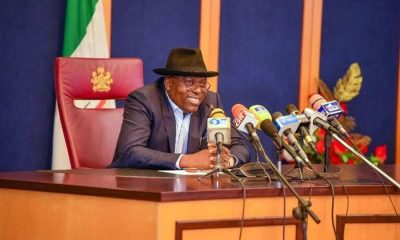
 metro2 days ago
metro2 days agoFubara reacts as Ex-HOS, Nwaeke accuses him of bombing oil pipelines, Rivers Assembly
-
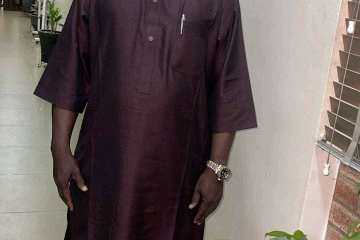
 metro2 days ago
metro2 days agoEmbrace environmental sanitation during Eid-Fitr, LAGESC boss tells Lagosians
-

 Opinion2 days ago
Opinion2 days agoBarbaric mass burning of innocents in Edo, by Farooq Kperogi
-
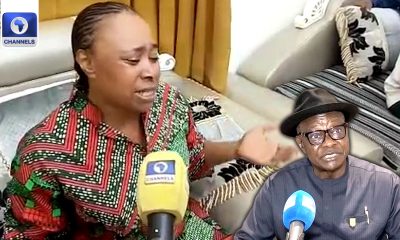
 metro2 days ago
metro2 days agoEx-Rivers HoS wife cries for help over husband’s safety
-
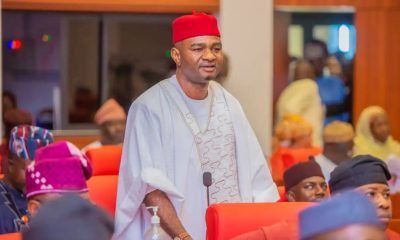
 metro2 days ago
metro2 days agoNatasha: Emmanuel Uduaghan threatens to sue Senator Nwaebonyi
-
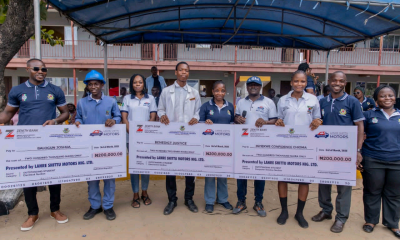
 Auto2 days ago
Auto2 days agoLanre Shittu Motors to endow Automobile Department of Lagos Technical College

